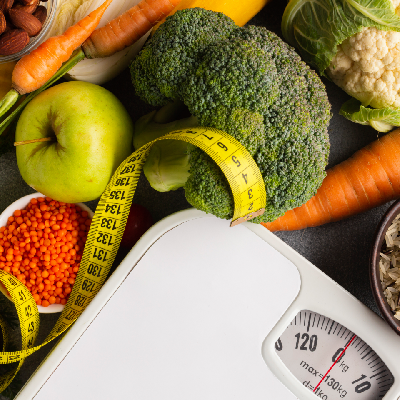Many young people feel constantly anxious, emotionally drained, and exhausted. But here’s a gentle truth the world needs to hear: self care isn’t selfish—it’s essential for mental health and emotional healing. Especially for Gen Z, embracing daily self care rituals is not a luxury—it’s survival. It’s a way to reclaim balance, rebuild energy, and protect their overall health and well-being in a chaotic digital age.
You don’t need a luxury spa day to reset your mind. Sometimes, it’s the tiny rituals—those quiet, personal, mindful actions—that make the biggest difference in your mental health.
Let’s explore 10 small self-care rituals that can deeply transform how you feel, think, and live. Each one is simple, powerful, emotional, and real—just like you.
1. Start Your Morning Without Your Phone
Instead of reaching for your phone the moment you wake up, try a simple ritual: 5 minutes of stillness.
Example:
Close your eyes. Take 3 deep breaths. Stretch. Look outside your window. Feel your heartbeat. It’s your reminder—you’re alive, and that matters more than your Instagram feed.
This moment of peace can lower anxiety, ground your thoughts, and set a positive mental tone for the day. When you start your day with calmness, everything else feels a little less chaotic.
Keywords: self care ritual, Gen Z morning routine, mental health habits.
2. Write 3 Sentences in a Journal Daily — A Ritual of Emotional Honesty
We live in a world that moves fast—notifications, deadlines, reels, and comparisons. Sometimes, in the middle of it all, we forget to pause and simply feel. That’s where journaling—yes, even just 3 simple sentences—becomes a small but powerful act of emotional clarity and healing.
You don’t need a leather-bound journal or poetic flair. All you need is a moment of honesty, a pen, and a scrap of paper (or your notes app). Here’s the formula:
- How you fee
- What you’re grateful for
- One thing you’re looking forward to
Why This Works:
These three sentences act like a daily emotional check-in. By naming your emotions, you reduce their power over you. Gratitude rewires your brain toward positivity. And by having something to look forward to, no matter how small, you train your mind to hope again.
Example:
“I’m tired. But I’m grateful for my dog. I’m looking forward to a walk tonight.”
This ritual builds emotional clarity and helps your mind process hidden stress. Writing gives your thoughts a safe space to exist—and that’s powerful.
Keywords: journaling for Gen Z, self care for mental health, gratitude ritual.
3. Touch Something Real (Nature or Yourself)
Yes, this might sound odd—but when was the last time you really felt something with your hands?
Touch is grounding. Petting your dog, brushing your hair slowly, watering a plant, or feeling the grass under your feet—these small tactile rituals remind you that you’re here, in the present.
Example:
Every evening, water a small plant on your windowsill. As you do it, breathe. Say to yourself, “I’m growing, just like this.”
Keywords: grounding techniques, self care tips for Gen Z, mindful living
4. Get 10 Minutes of Sunlight
Sunlight is nature’s free antidepressant. It boosts your Vitamin D, regulates your sleep cycle, and lifts your mood.
Example:
Instead of scrolling during your lunch break, sit outside. Feel the warmth on your face. Listen to the birds. Take a moment to be alive.
Sunlight tells your body: You’re safe. You’re loved.
Keywords: sunlight benefits, health tips for Gen Z, mood boosters
5. Drink a Glass of Water with Intention
Most of us drink water on autopilot. But what if you turned it into a self-care moment?
Example:
As you sip water, say in your mind: “I nourish myself because I matter.”
Hydration affects your energy, focus, and even mood. This tiny ritual is a simple way to respect your body—and improve your mental health in the process.
Keywords: hydration for health, mindful drinking, Gen Z self care tips
6. Create a Feel-Good Playlist (And Actually Listen)
Music has healing powers. It can make you cry, dance, laugh, or just feel again when you’ve been numb.
Example:
Make a playlist called “Safe Space” or “Songs That Heal Me.” Put in tracks that remind you of better days or inspire hope. Play it when you feel lost.
Keywords: music therapy, Gen Z emotions, self healing playlist
7. Digital Boundaries: Mute, Block, Unfollow
If someone’s posts make you anxious, jealous, or not good enough—that’s your sign. You don’t owe anyone your peace.
Example:
Take 10 minutes and clean your feed. Fill it with creators who inspire you, not drain you.
Your mental health matters more than their feelings.
Keywords: digital detox Gen Z, social media stress, mental health online
8. Give Without Expecting Anything Back
Helping others creates a feedback loop of happiness. It activates the “helper’s high”—a real chemical response that improves your mood.
Example:
Text a friend: “I’m proud of you.”
Or leave a kind note anonymously. Donate an old book. Compliment a stranger.
You’ll feel emotionally lighter, more connected, and mentally refreshed.
Keywords: selfless acts for mental health, emotional wellness, Gen Z kindness
9. Create a Nighttime Wind-Down Ritual
Don’t just fall into bed. Prepare yourself to rest. Your brain craves signals that it’s time to relax.
Example:
Brush your teeth. Light a candle. Put your phone away. Read a single page. Breathe deeply. Whisper, “I’ve done enough today.”
This calms your nervous system and improves sleep quality, which deeply affects mental health.
Keywords: sleep hygiene, bedtime rituals, Gen Z mental wellness
10. Talk to Yourself Like Someone You Love
Would you ever call your best friend a failure for feeling tired or anxious? Then why do it to yourself?
Example:
Stand in front of a mirror. Say:
“You’re trying. You’re strong. You are worthy of love.”
You might feel silly at first. But the more you repeat it, the more your brain starts believing it.
Keywords: affirmations for Gen Z, self love ritual, emotional healing
10 Most Asked FAQs
1. Is self-care really necessary for Gen Z?
Yes. With the rising rates of anxiety, depression, and burnout among Gen Z, self-care isn’t optional—it’s essential.
Example: A college student practicing 5-minute breathing daily saw fewer panic attacks during exams.
2. Can I practice self-care without spending money?
Absolutely. Most powerful rituals—breathing, journaling, walking—are free.
Example: A student started journaling in a INR50 notebook and felt emotionally lighter within a week.
3. What’s the best time to practice self-care?
Whenever it feels right for you. Mornings are great for intention-setting, nights are perfect for reflection.
4. What if I feel guilty taking time for myself?
Remember: caring for yourself allows you to care for others better. You can’t pour from an empty cup.
5. I’m too busy. How can I fit these into my schedule?
Start with one ritual for 3 minutes a day. Stack it with habits you already do—like while brushing or commuting.
6. Can self-care replace therapy?
No—but it can support it. Think of therapy as your toolbox, and self-care as daily maintenance.
7. I’m inconsistent. How do I stick to these rituals?
Make it enjoyable. Keep it small. Add reminders in your phone. Be kind to yourself if you miss a day.
8. Do I need to post about my self-care online?
Not at all. Some of the most powerful healing happens privately. Do it for you, not the likes.
9. How do I know which ritual is right for me?
Try a few. Notice how each makes you feel. Choose the one that gives you peace, clarity, or energy.
10. Is it okay to ask for help even if I practice self-care?
Absolutely. Self-care and asking for help can coexist. In fact, seeking support is a powerful form of self-love.
Final Thoughts
Dear Gen Z: You are growing up in a noisy, overwhelming world—and still, you shine. Self-care isn’t selfish. It’s how you survive, heal, and thrive.
These tiny rituals may look small, but when done with intention and love, they create huge ripples in your mental health. Start small. Stay consistent. And remember, you deserve to feel good—not just sometimes, but every single day.
Suggested Link: https://gohealthypro.com/10-indications-your-mental-health-and-wellness-might-be-worsening












